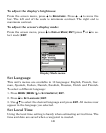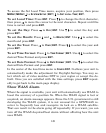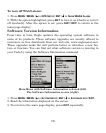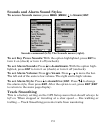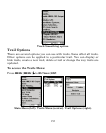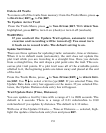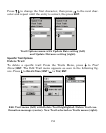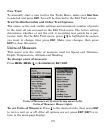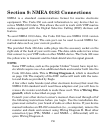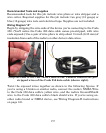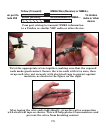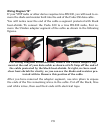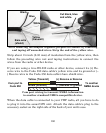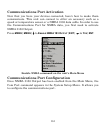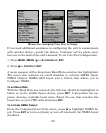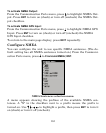156
Section 9: NMEA 0183 Connections
NMEA is a standard communications format for marine electronic
equipment. The Cuda 350 can send information to any device that re-
ceives NMEA 0183 data. This allows the unit to work with VHF marine
radios equipped with the Digital Selective Calling (DSC) distress call
feature.
To send NMEA 0183 data, the Cuda 350 has one NMEA 0183 version
2.0 communication port. The com port can be used to send NMEA for-
matted data such as your current position.
The provided Cuda 350 data cable plugs into the accessory socket on the
right side of the back of your unit's case. The data cable ends in two wires
that connect to your VHF radio or other NMEA device. The Cuda 350 uses
the yellow wire to transmit and the black shield wire for signal ground.
NOTE:
Some VHF radios, such as the popular Uniden
®
brand, have input lev-
els which require use of an additional diode and resistor built into the
Cuda 350 data cable. This is Wiring Diagram A, which is describe
d
on page 159. The majority of the DSC radios will work with the resis-
tor and diode as provided by Eagle.
A few other radio brands (and other electronic devices) that meet the
NMEA 0183 standard won't need these adapters and you will have t
o
remove the resistor and diode to make those work. This is Wiring Dia
-
gram B, which is described on page 161.
Consult your other device's owner’s manual, then read through all
o
f
the following instructions before you begin. Use the installation dia-
gram most suited to your brand of radio or other device. If your device
manual indicates an RS-232 connection (i.e., a computer), remove the
resistor and diode and connect using Wiring Diagram B. Most othe
r
connection types (TTL; NMEA + and NMEA –; differential) will re-
quire Wiring Diagram A.



